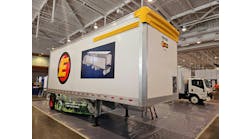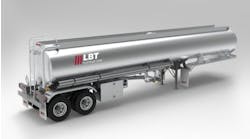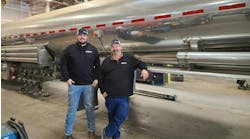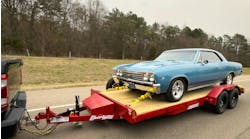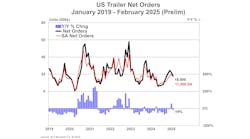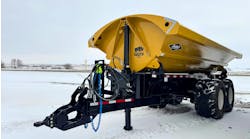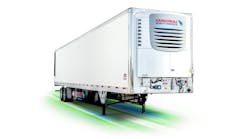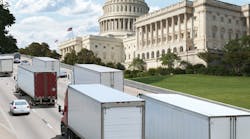Covering breaking news is a challenge for a monthly magazine. It’s tough to plan around, and arguably current events are obsolete by the time we go to press and then to the post office. And chances are we would’ve posted the reporting on the website already. But, as a former daily newspaper editor, I really hate to see recent events go unmentioned—if for no other reason than news items provide some context to our feature stories. That being said, here are some items of interest from the past month that those of us in the transportation equipment business need to keep an eye on, along with a little editorializing—since that’s what this space is for.
Justice in the real world. In a case against trailer manufacturer Great Dane, a federal appeals court came down firmly on the side of common sense and supported the original trial judge’s decision to throw out the lawsuit
The Kentucky state-law products-liability claim was brought on behalf of a woman and her young son, both of whom were involved in a serious “side-underride” crash with a tractor-trailer. The only remaining defendant was Great Dane.
At issue on appeal was the district court’s exclusion of expert-witness testimony about an alternative design that allegedly would have prevented, or at least mitigated, the injuries.
The specific claim involved “crashworthiness,” and one element of proving such a claim would be to show that an alternative, safer design exists, and would be practical under the circumstances. That alternative design argued at trial was a “telescoping side guard,” one that would expand to protect the space opened up when a truck’s sliding rear-axle is moved toward the rear.
“Critically,” the appeals court affirmed, only a telescoping side guard would have prevented or reduced the extent of the plaintiff’s injuries. Indeed, the rear axle on modern tractor-trailers can be extended rearward to comply with various state and federal regulations, the court noted.
In the accident, the trailer’s wheels were in the most rearward possible position at the time of the accident, and the plaintiff’s sedan hit the trailer near the rear axle.
So if a regular, non-telescoping side guard had been in place, there would still have been a 78-inch gap between the rear tires and the side guard, large enough to fit the driver’s 72-inch-wide sedan. Thus, only a telescoping design would have extended far enough back to the rear wheels so as possibly to prevent underride from occurring there.
And in a report prepared for this litigation, the expert proposed just such a design for a telescoping side guard. His report also included another, similar telescoping design that was developed but apparently never produced almost 20 years ago.
That was the problem, however: “Nobody has ever built or tested one in the real world”—even though elements of the telescoping design have existed for some time, and computer simulations suggest that the design could work.
“The concept here exists only in theory, rendered on paper and in computers, but never given physical form,” the decision reads. “Particularly due to the difficulty of achieving the right balance between strength and flexibility—as demonstrated by the history of rear-guard regulation—and the even greater difficulties of designing side guards, it made good sense for the district court to require some physical testing on the facts of this case.”
Additionally, the proposed alternative was not accepted and in general use within the relevant industry—that being highway truck trailers—and that’s another standard for evidence.
And, under the standard, the testimony of a witness can’t be largely created for the specific incident. So the district court held that the case was unreliable and thus inadmissible, and therefore granted summary judgment to Great Dane. The appeals court agreed. Case closed.
Finding skilled workers is tough, but … A trailer manufacturer made national news for the wrong reasons when some 300 US Immigration and Customs Enforcement agents visited Load Trail LLC’s North Texas office. In what was reported as the largest such raid in a decade, the agents detained 160 suspected undocumented workers along with company computers and paperwork.
“Yeah, I think surprised is the right word,” Gene Besen, attorney for Load Trail, told Dallas TV station WFAA. “We’re going to conduct our own investigation and coordinate with the Department of Justice and see where this plays out.”
Load Trail paid almost a half-million-dollar fine for knowingly employing undocumented immigrants in 2014, the report continued. As part of a settlement, Load Trail was ordered to E-Verify all hires to make sure they can legally work in the US.
But an insider, who agreed to speak without being identified, told WFAA that the company found ways around E-Verify. Besen dismissed the insider’s allegation, according to the report, which noted that it could take months before the government decides whether to file criminal charges.
In the meantime, the raid is a reminder to manufacturers: Keep that HR paperwork in good order.
